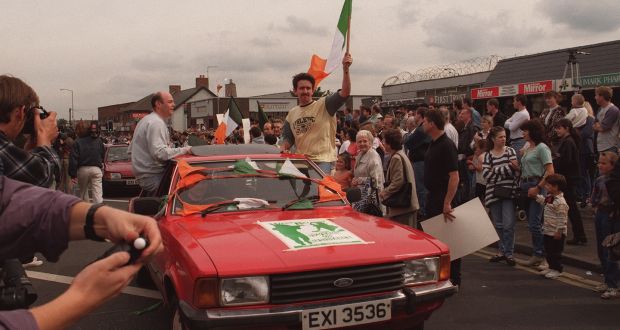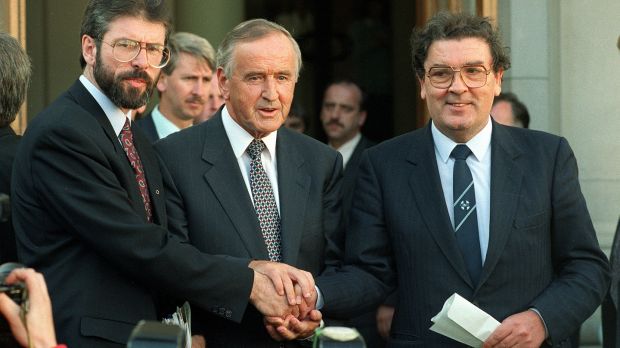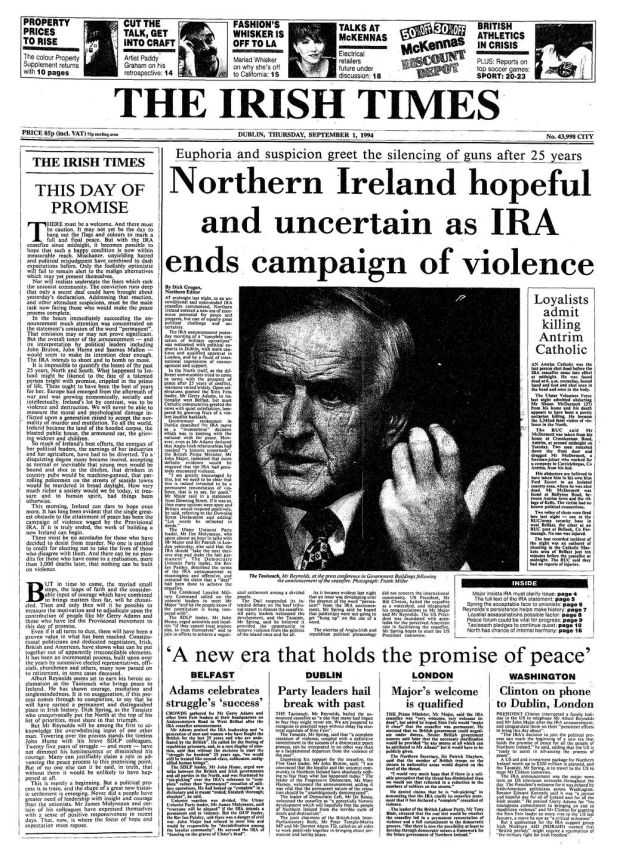Trust played a vital role in commencing the negotiations. Without trust the round table talks would have left out Sinn Fein, a republican political party and was associated with the violence of the IRA, Irish Republican Army. This would have caused more violence. Many parties were afraid of starting negotiations with the IRA and other actively violent groups out of fear. In 1994, the IRA declared a ceasefire; they promised not to use their arms or weapons anymore.

People celebrating the 1994 IRA ceasefire in Belfast. (Peter Thursfield)

